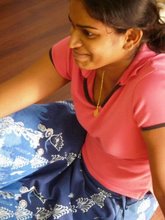Permaculture DEFINITION
- A globally recognized environmental design methodology. The founders of Permaculture, Bill Mollison and David Holmgren, coined the term 25 years ago. Now there are over 4000 independently operated projects in 120 countries
- A holistic ecological approach to the design and development of human settlements takes into account food production, structures, technologies, energy, natural resources, landscape, animal systems, plant systems, and social and economic structures.
- About working with, rather than against, nature. It provides us with the tools to satisfy our needs in a way that sustains the earth, future generations and ourselves.
- Inspired by traditional wisdom, especially the sustainable farming cultures of Asia, India and Africa and incorporates new appropriate methods and technologies.
Permaculture ETHICS & PRINCIPLES
EarthCare Permaculture as a design system is based on natural systems. It is about working with nature, not against it - not using natural resources unnecessarily or at a rate at which they cannot be replaced. It also means using outputs from one system as inputs for another (vegetable peelings as compost, for example), and so minimizing wastage.
PeopleCare People care is about looking after us as people, not just the world we live in. It works on both an individual and a community level. Self-reliance, co-operation and support of each other should be encouraged. It is, however, important to look after ourselves on an individual level too. Our skills are of no use to anyone if we are too tired to do anything useful! People care is also about our legacy to future generations.
FairShare The fair shares part of the Permaculture ethic brings earth care and people care together. We only have one earth, and we have to share it - with each other, with other living things, and with future generations. This means limiting our consumption, especially of natural resources, and working for everyone to have access to the fundamental needs of life - clean water, clean air, food, shelter, meaningful employment, and social contact.
This article has been extracted from resources made available on the Permaculture Association of Britain website















 In February 2007, a couple of friend and I embarked on a volunteer trip to Cambodia . Before the trip,
In February 2007, a couple of friend and I embarked on a volunteer trip to Cambodia . Before the trip, 
 A community of about 200 Muslims
A community of about 200 Muslims  We went in 3 hours a day to conduct classes.
We went in 3 hours a day to conduct classes.  We camped outside the classroom and splashed around with colours, played games, and experimented with
We camped outside the classroom and splashed around with colours, played games, and experimented with  Before we left, the children decorated their classroom with the artwork they created.
Before we left, the children decorated their classroom with the artwork they created. We promised to go back. In December, we will be organising a charity art exhibition to raise funds for the
We promised to go back. In December, we will be organising a charity art exhibition to raise funds for the 

 My father, Alex Arokiam, manager of Welcome Community Home encouraged me to work with a British theatre director Brian Jones, of Cloudbreak to draw out stories from these very talented and expressive men. Brian then devised and adapted their individual stories into a 4 scene theatre performance.The stories were based on real life experiences. In 3 out of 4 scenes, our scriptwriters also acted as themselves. We performed to a full house and received standing ovation at our premier it Actors Studio, on 8 December 2006.
My father, Alex Arokiam, manager of Welcome Community Home encouraged me to work with a British theatre director Brian Jones, of Cloudbreak to draw out stories from these very talented and expressive men. Brian then devised and adapted their individual stories into a 4 scene theatre performance.The stories were based on real life experiences. In 3 out of 4 scenes, our scriptwriters also acted as themselves. We performed to a full house and received standing ovation at our premier it Actors Studio, on 8 December 2006. 

 In 2007, the Fallen Leaves Theater Company refined their acting skills and staged several adaptations of their play at various venues around KL in partnership with Cloudbreak.
In 2007, the Fallen Leaves Theater Company refined their acting skills and staged several adaptations of their play at various venues around KL in partnership with Cloudbreak.



 In 2003, I participated in a 9 day creative camp for 25 selected art students from Malaysia. Our collective experience culminated in an art exhibition at the National Art Gallery. We erected a Muzeum of Rubbish addressing the relationship between consumerism and the changing landscape of wetlands ecology. The museum exhibited artifacts which were brought in by the sea and were filtered down by the tides, along a stretch of mangrove forest on the coast of Kuala Selangor.
In 2003, I participated in a 9 day creative camp for 25 selected art students from Malaysia. Our collective experience culminated in an art exhibition at the National Art Gallery. We erected a Muzeum of Rubbish addressing the relationship between consumerism and the changing landscape of wetlands ecology. The museum exhibited artifacts which were brought in by the sea and were filtered down by the tides, along a stretch of mangrove forest on the coast of Kuala Selangor. 





